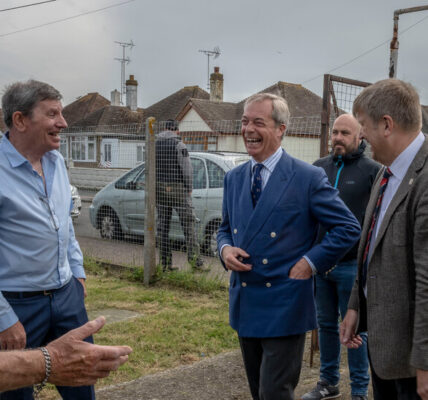But the two round trips beg the question: Why didn’t he just stay in Europe for a couple days, play a round of golf, visit some American troops, maybe huddle with a foreign leader or two? He is, after all, 81, and some of his aides who are half his age were complaining about lost sleep cycles.
The White House’s explanation for four trans-Atlantic crossings in nine days was simply that Mr. Biden had commitments in Washington. But by presidential standards, his public schedule looked light: a lunch with Vice President Kamala Harris and a speech to a gun-safety group. Hunter Biden’s trial also loomed over the planning, though it was impossible to know when these trips were planned that the case would go to the jury and a verdict would be rendered in the three days between the D-Day trip and the G7 meeting. As it turned out, Mr. Biden shuttled back to Delaware on Tuesday afternoon to be with his son before taking off again in the morning.
But privately, some aides said there were election-year optics to be considered. There was no urgent reason to stay in Europe, and a few down days “might not look right,” one of Mr. Biden’s advisers conceded, though the aide quickly added that Mr. Biden never really took a down day. In any case, no one wanted images of the president on what his political opponents might cast as a European holiday, at least while he is running for re-election. A long weekend in Rehoboth, the Delaware town where he and his wife, Jill, have a beach house, might be one thing; a few days in France or Italy have an entirely different look.
The presidency, of course, is the ultimate work-from-anywhere job. There are instant communications (a White House van, bristling with antennas, travels in every motorcade) and a staff of hundreds ready to cater to every contingency, whether that involves sending off a thank-you note or launching a retaliatory nuclear strike.
The intolerance for seeing presidents abroad, save for work, has a long history. Franklin D. Roosevelt loved to camp at Campobello Island, in Canada, though as president he kept the visits brief. When Harry S. Truman went to Potsdam, Germany, to negotiate with Joseph Stalin and Winston Churchill about what post-World War II Europe would look like, he stayed for more than two weeks. There were days off from the negotiations, but not for long, and the nearest big city, Berlin, was a bombed wreck. And there was a reminder of the risks of being out of town: Churchill’s party lost to Labour during the conference, and he got booted out of office while it was still going on.




